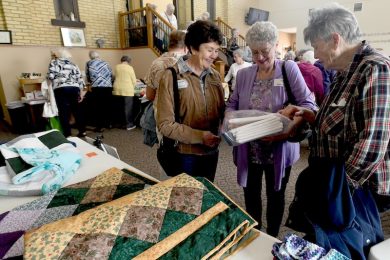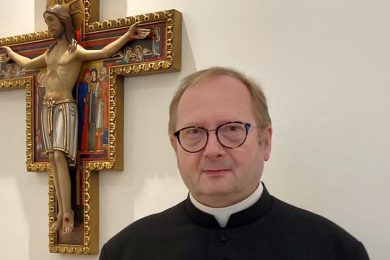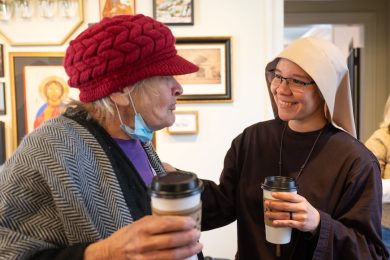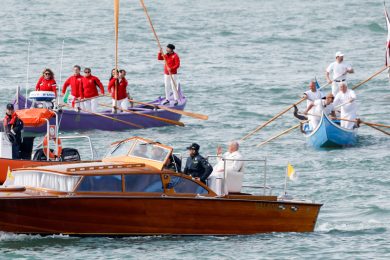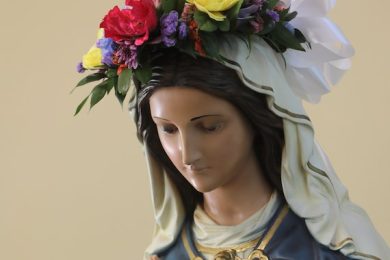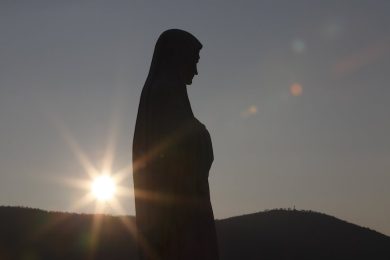VATICAN CITY (CNS) — To complain to God in moments of doubt and fear like Abraham did is not something bad but rather is a form of prayer that requires the courage to hope beyond all hope, Pope Francis said.
While in life there may be times of frustration and darkness, “hope is still there and it moves us forward,” the pope said Dec. 28 during his weekly general audience.

“I won’t say that Abraham loses patience, but he complains to the Lord. This is what we learn from our father Abraham: complaining to the Lord is a form of prayer. Sometimes I hear confessions where people say, ‘I complained to the Lord.’ But no. (Continue) to complain; he is a father and this is a form of prayer. Complain to the Lord, this is good,” he said.
Entering the Paul VI audience hall, the pope greeted thousands of pilgrims from all over the world. Among those present was a group of performers from Italy’s Golden Circus, who performed several acrobatic feats and entertaining performances at the end of the general audience.
The pope even participated in one of the performances. As he and an illusionist grabbed the ends of a tablecloth, they seemingly made a small nightstand levitate to the amazement and applause of the pilgrims.
During the audience, the pope continued his series of talks on Christian hope and reflected on the life of Abraham who, along with his wife, Sarah, left his homeland with hope in God’s promise of a son.
This hope, he said, gave Abraham the ability to “go beyond human reason, and worldly wisdom and prudence” to believe in the impossible.

“Hope opens new horizons; it makes us able to dream that which isn’t imaginable. Hope makes us enter into the darkness of an uncertain future to walk in the light,” the pope said.
However, this path is not without its difficulties, even for Abraham, who, after months of travel, began to doubt God’s promise of a son borne by his wife, Sarah.
It is in this moment, the pope said, that Abraham prays to God in the dark of night, a darkness that mirrored his “disappointment, discouragement and the difficulty of continuing to hope in something impossible.”
Faith is not just silent acceptance or a “certainty that secures us from doubt and perplexity,” but it also means “to argue with God and show him our bitterness without ‘pious pretenses.'”
“‘I became angry with God, I told him this, this, and that.’ But he is a father and he understands you; go in peace. You must have this courage. This is hope,” the pope said.
It is in the darkness of night and in the darkness of his own doubts that Abraham once again receives, believes and hopes in God’s promise of descendants as numerous as the stars, Pope Francis said.
“To believe, it is necessary to know how to see with the eyes of faith; we all may (look up and) only see stars, but for Abraham, they become a sign of God’s faithfulness,” the pope said. “Hope never disappoints.”

